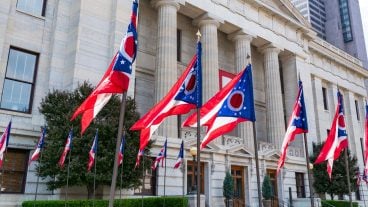Farmer’s Guide to Trucking Regulations available to Ohio Farm Bureau members
The guide includes a farm driver checklist, overview of state and federal regulations and exemptions, CDL qualifications and more.
Read More
For many Americans, Social Security makes up a sizable amount of their income in retirement. In 2018, 63 million Americans received approximately $1 trillion in Social Security benefits, with a majority of those funds going to retired workers.¹ However, due to the way in which many farm operators utilize the tax code to adjust their income, many farmers run the risk of not qualifying for Social Security retirement benefits.
For any individual to qualify for Social Security retirement benefits, they must have earned a minimum amount of either wages or net profit for a given year (or quarter). Individuals earn one credit per quarter in which an annually-set minimum required wage or net profit is achieved. For 2019, the minimum earnings per quarter are $1,360.² Individuals can earn up to four credits per year, making the total minimum earnings equivalent to $5,440 for 2019. To qualify for future benefits under Social Security, an individual must have earned 40 quarters (or 10 years) of wages or net profits. If an individual does not have at least the 40 required earned credits, they will not be able to collect Social Security retirement benefits.
Your farm business structure matters
For those individuals that own and operate a farm as either a C-corporation or as an S-Corporation, it is highly likely they will already be paying themselves wages. Any wages of $1,360 per quarter (or $5,440 per year) will receive their max of four credits for benefit calculations. For those farmers who run their operation through an LLC or are filing their taxes as a sole proprietor under a Schedule F return, credits will be earned on net farm income. Net farm income in excess of $5,440 per year will result in four credits being earned. However, farmers who utilize tax deductions and expenses that result in an income loss for the tax year (reported on a Schedule F IRS tax form) should be aware that this action will result in zero credits being earned for that tax year.
Who pays the Social Security tax is another key issue. Individuals employed by an employer will have 6.2%³ of their pay withheld for Social Security tax and 1.45%4 withheld for Medicare tax, while the employer pays the other half of the total tax. For many farmers, these two taxes will both be paid by the individual, generally referred to as self-employment tax, for a total of 15.3%. It’s important to note that any wages above $132,9005 will not be assessed the 12.4% tax and will only be subject to the additional Medicare taxes.
Get the most out of your Social Security benefits. Register for one of our online webinars to learn more.
1 I.R.C. § 212
2 I.R.C. § 67
3 I.R.C. § 55
4 Treas. Reg. § 1.404(a)-3(d)
5 I.R.C. Sec. 72(e)(2)


The guide includes a farm driver checklist, overview of state and federal regulations and exemptions, CDL qualifications and more.
Read More


Ohio Farm Bureau provides opportunities, platforms and resources to help you develop your voice in the industry and give farmers a seat at the table with leaders and legislators.
Read More

The emergency fuel waiver to allow the sale of summer gasoline blends containing 15% ethanol will lengthen the period during which Americans can continue buying E15 from June 1 to Sept. 15.
Read More

The Small-Scale Food Business Guide covers federal and state regulations for selling food products such as raw meat, dairy, eggs, baked goods, cottage foods, fruits and vegetables, honey and more.
Read More

New resources and technology are broadening the different types of sales tools and strategies available to farmers.
Read More

ODA will enroll 500,000 acres into the program for a two-week sign-up period, beginning April 22, 2024, through May 6, 2024. Contact local SWCD offices to apply.
Read More

Katie Share of Columbus has been named ExploreAg and Youth Development Specialist for Ohio Farm Bureau.
Read More

Mary Klopfenstein of Delphos has been named Young Ag Professional and Ag Literacy Program Specialist for Ohio Farm Bureau.
Read More

The plan has been updated to give sole proprietors access to more rate stability and a smart solution that offers potential savings on health care.
Read More

The American Farm Bureau Federation, in partnership with Farm Credit, is seeking entrepreneurs to apply online by June 15 for the 2025 Farm Bureau Ag Innovation Challenge.
Read More